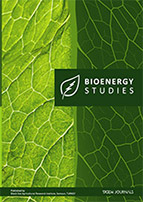Turkish Journal of Fisheries and Aquatic Sciences
2017, Vol 17, Num, 1 (Pages: 181-191)
Antibacterial Activities of the Essential Oils of Some Aromatic Medicinal Plants to Control Pathogenic Bacteria and Extend the Shelf-Life of Seafood
2 Hajjah University, Department of chemistry, Faculty of Applied Science, P.O. Box 80004, Yemen
3 Marine Science and Biological Research Authority, Aden, P.O. Box-1231, Aden, Yemen DOI : 10.4194/1303-2712-v17_1_20 Viewed : 5513 - Downloaded : 4822 The antibacterial activity of Pulicaria inuloides and Pulicaria crispa essential oils was tested against Listeria monocytogenes, Escherichia coli and Staphylococcus aureus using agar disc diffusion and microtiter broth microdilution assays. PIEO, the essential oil from Pulicaria inuloides, inhibited all tested microorganisms with a minimum inhibitory concentration (MIC) of 5.7, 0.12 and 5.11 mg/ml against Listeria monocytogenes, Escherichia coli and Staphylococcus aureus respectively. PCEO, the essential oil from Pulicaria crispa, showed a lower inhibition for all of the tested microorganisms. The present study evaluated the impact of PIEO on L. monocytogenes, E. coli, S. aureus and tap water (control) inoculated in fish fillets. Results indicated that PIEO eliminated most of L. monocytogenes, E. coli, S. aureus and SPC immediately after treatment at time zero (25°C) and during storage at 10°C for 12 days, and it increased the shelf -life of seafood during storage at 10°C compared with the tap water, whereas SPC counts were high than 7 log CFU/g at the end of storage.
The sensory evaluation of fillet fish treated with Pulicaria inuloides essential oil were acceptable by consumers at the level of 0.1 g/100g EO. Fish purchased from supermarkets in Wuxi province, Jiangsu, China, were maintained with good hygiene practices and health conditions, whereas fish purchased from local markets were not. Keywords : Pulicaria inuloides, Pulicaria crispa, fillet fish, pathogenic bacteria, microbial loads
















